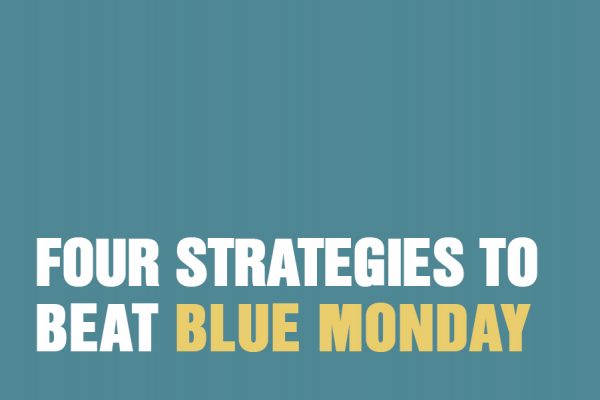Does your workplace encourage you to take risks and be your authentic self? Or are you putting on your ‘best face’ and fear saying or doing anything unique or creative in case it has a negative impact on your career? If it’s the latter, then you may lack psychological safety at work.
Psychological safety was defined back in 1990 by William Kahn as “being able to show and employ one’s self without fear of negative consequences of self-image, status or career”. Amy C. Edmondson has researched this area for two decades and has written about her findings in her 2018 book The Fearless Organization: Creating Psychological Safety in the Workplace for Learning, Innovation and Growth.
Why psychological safety is important
Psychological safety is deemed important for organisations because innovation is key to succeeding in today’s fast-paced, 24/7 world. If employees fear speaking out or sharing an idea that is only coming into shape, then the next exciting innovation may never see the light of day. The organisation may lose its grip on a growing market and lose a sparkling opportunity to take a lead on competitors.
Amy Edmondson defines psychological safety as a work climate where employees:
- Feel comfortable expressing and being themselves.
- Feel able to share concerns and mistakes without fear of embarrassment or retribution.
- Are confident they can speak up and won’t be humiliated, ignored or blamed.
- Can ask questions when they are unsure about something.
- Trust and respect their colleagues.
- Feel confident reporting mistakes quickly, so solutions can also be found quickly.
- Know that mistakes are welcomed, rather than shamed.
- Have courage to share innovative ideas (even if half-formed).
- Feel their opinion counts.
- Know they won’t be suppressed, silenced, ridiculed or intimidated by expressing an original thought.
- Can speak their truth.
- Know that their performance will still be managed if not reaching agreed expectations, but they won’t be shamed for this.
Crucially, Amy Edmondson says people in a workplace with psychological safety are “not hindered by interpersonal fear. They feel willing and able to undertake the inherent interpersonal tasks of candour”. In other words, they feel safe to speak their truth, especially around creative and critical thinking. Speaking out can feel brave and risky, especially if there is no explicit support or space for honest and authentic expression. Which is why organisations are urged to take this issue seriously, as it can affect individual and organisational performance.
When there is no psychological safety at work, individuals can feel…
- Reluctant to stand out.
- Scared of being wrong.
- Fearful of offending the boss.
- They’d prefer to hold back rather than share.
- Terrified of saying or asking something that makes them look bad.
- A need to fit in and go along with the status quo.
- They have to squish their creative ideas and can end up believing they’re not good enough.
- Shamed and not valued.
How lack of psychological safety can affect mental health
- The factors that Amy Edmondson outlines in the workplace might have echoes to the circumstances that influence a person’s experience when growing up.
- Family dynamics can be recreated in the workplace – usually unconsciously – and that can lead to a situation where individuals silence themselves further. Why stand up to a boss who you experience as controlling and dismissive, when this may recreate feelings from childhood when a parent had no time or attention for you.
- Not being able to express yourself can lead you to shutting down and denying your best self.
- Feeling shamed by a boss or colleague when you’ve expressed an original thought can sink your self-esteem and lead you to feeling bad about yourself and your abilities.
- Noting or making mistakes can make you feel bad. Not being able to report them can make you feel much worse.
- Lack of emotional support in the workplace can leave you feeling abandoned and alone: not an environment to offer your best work.
- Feeling alone in a place where you’re meant to feel connected can bring on symptoms of despair and depression.
- Fearing going to work – whether you’re under or over worked – can develop anxiety and fear symptoms.
- Quality of life can be affected if you spend eight hours of every day not feeling appreciated or valued by peers and bosses.
- Sleep can also be affected – and lack of sleep has been shown to heighten emotional responses and lessen rational thinking.
- Not being able to think clearly, because you’re under stress most of the time, may affect your emotional ability to do your job.
- Stress levels may mount because it becomes too exhausting to deal with the toxic work environment.
If you’re identifying with any of the above, then your first step is to DO something. It can be easy to sink into a sense of helplessness if your work environment isn’t supporting you. Speak to your boss or HR, or someone supportive in your organisation. Think about what’s important for you, and are your work needs truly being met. Know that you have choices, and that you can act on those choices if you need to.
If workplace issues are getting on top of you – and you fear you’re reaching the peak of your stress levels – then reach out for help before you burn out. We offer therapy sessions seven days a week from our centres in Clapham and Tooting – helping you to fit therapy around your work schedule. Call 020 8673 4545 or email [email protected] to book.







